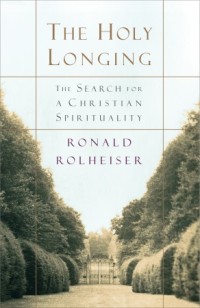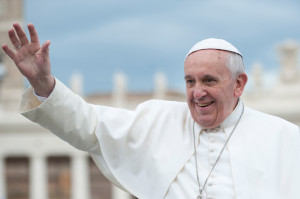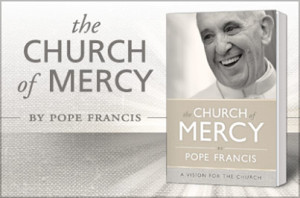Are Catholic Bishops Living too Lavishly? CNN says so…
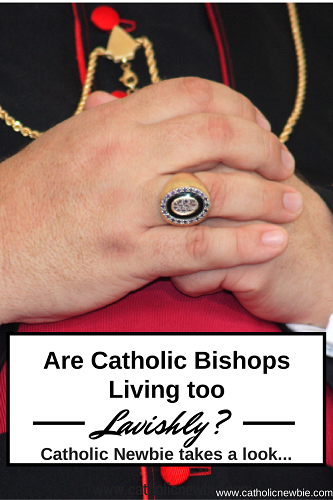
Over the weekend, I came across an article that stopped me in my tracks. The CNN Belief blog lists the residences of many of America’s prominent Catholic bishops, noting their size and value, which they define as “lavish.” It made me think about the morality of how a bishop should live.
Recently, Pope Francis, who is known for his humble ways, warned seminarians and nuns to avoid the temptation of thinking “the latest smartphone, the fastest moped and a car that turns heads” will make them happy. He even recommended riding a bike, or if you have to drive a car, to just “get a humbler one.”
But because this CNN article was not from the Catholic Church, rather from secular media, I knew there had to be more than meets the eye, so I asked some lay folks, priests, well-known Catholic personalities and Catholic authors to weigh in along with my thoughts.
Don’t Judge a Book by Its Cover
Patti Armstrong, a prominent Catholic writer and author, noted that while the article pointed out the size and value of these residences, it did not consider HOW the bishops live in these residences. It is quite likely that they live humbly within the walls.
“People are judging by the building,” she said. “No one has been able to point to opulent living. You can’t judge by the cover and a house is just a cover.” She notes that St. Thomas Moore was a martyr whose position with King Henry VIII afforded him luxurious living. “The residence that comes with a position does not indicate necessarily how one lives,” she said.
Additionally, these residences are not the bishops’ personal homes but rather belong to the diocese.
A Matter of History
There is also the issue of the importance and magnificence of some of these buildings. Just as the Vatican holds a treasury of incredible artwork, written works, gorgeous historic cathedrals and ancient “lavish” artifacts, so may some of these American cathedrals and structures be historically or architecturally significant – now or down the line.
“Imagine if all of the Vatican treasures had been sold off, all that history,” said Armstrong. “There would be nothing for us to see today.” In caring for these buildings, opening them for public use and appreciation, and passing them down from bishop to bishop from priest to priest and from parish to parish, the Church is being a good steward of precious possessions. After all, if we are judging things by size and value, the size of St. Peter’s is several football fields and contains priceless works of art and no one thinks that should be sold!
Teresa Tomeo, host of Catholic Connection on EWTN radio and popular Catholic author, noted, “A lot of these homes have been in the various dioceses for decades or even longer and are attached or very close to the cathedrals.” A great article over at CatholicVote.com also notes that many of these residences were built over a century ago so the church is not paying mortgages. They also write that many of the buildings written about in the article are in some of the largest metropolitan areas with the highest property values.
But what about the newer homes built specifically for these bishops? “Many have been donated or built by the people and most are used as places for other clergy to stay when they come to town,” said Tomeo.
Meeting the World Where It Is
The need for meeting space and accommodations for overnight guests is another reason for the size of some of these residences. Many may house several priests or even staff in addition to the bishop. The argument can also be made that bishops must entertain prominent individuals who might not be accustomed to such humble surroundings as dictated by the Catholic Church. While that may be the case, would anyone, even royalty, have demanded that Mother Teresa meet them in a more lush space?
Father Christopher Roberts of the Lafayette, Ind., diocese and blogger at For Christ and the Church also noted that “The Church has always tried to engage the world in order to convert it,” and that, in fact, Peter and Paul went to Rome for that reason. “Sharing the Gospel in the modern world will often mean the Church has to adopt modern business practices and technology.” But the question is, to what extent?
What Does the Church Teach About This?
In the Catechism of the Catholic Church, it says “The precept of detachment from riches is obligatory for entrance into the Kingdom of Heaven. All Christ’s faithful are to ‘direct their affections rightly lest they be hindered in their pursuit of perfect charity by the use of worldly things and by an adherence to riches which is contrary to the spirit of evangelical poverty.’” (2544-2545)
Thanks to Father Roberts for directing me also to the PRESBYTERORUM ORDINIS document from Vatican II. It echoes Father’s sentiments about working in the world when it says, “Their ministry itself, by a special title, forbids that they be conformed to this world; (20) yet at the same time it requires that they live in this world among men. (21)” Vatican II, Presbyterorum Ordinis, Chapter I, No. 3, 20-21
Here is more from this document that directs us on the morality of a priest’s and bishop’s use of “goods”:
“Ecclesiastical goods, properly so called, according to their nature and ecclesiastical law, should be administered by priests with the help of capable laymen as far as possible and should always be employed for those purposes in the pursuit of which it is licit for the Church to possess temporal goods-namely, for the carrying out of divine worship, for the procuring of honest sustenance for the clergy, and for the exercise of the works of the holy apostolate or works of charity, especially in behalf of the needy.(45) Those goods which priests and bishops receive for the exercise of their ecclesiastical office should be used for adequate support and the fulfillment of their office and status, excepting those governed by particular laws.(46) That which is in excess they should be willing to set aside for the good of the Church or for works of charity. Thus they are not to seek ecclesiastical office or the benefits of it for the increase of their own family wealth.(47) Therefore, in no way placing their heart in treasures,(48) they should avoid all greediness and carefully abstain from every appearance of business.” – Vatican II, Presbyterorum Ordinis, Chapter III, Section 2, No.17, 45-48
And “A certain common use of goods, similar to the common possession of goods in the history of the primitive Church, (52) furnishes an excellent means of pastoral charity… Before the other followers of Christ, let priests set aside every appearance of vanity in their possessions. Let them arrange their homes so that they might not appear unapproachable to anyone, lest anyone, even the most humble, fear to visit them.” – Vatican II, Presbyterorum Ordinis, Chapter III, Section 2, No. 17, 52 & 53
Here’s what stands out to me:
- All excess should be set aside for the good of the Church or works of charity.
- They should avoid all greediness.
- They should carefully abstain from every appearance of business.
- Let them arrange their homes so that they might not appear unapproachable to anyone.
Not Size, but Intention
I think we need to view this from the perspective of not how big is the rectory and how much is it worth, but how are the bishops “addressing their affections,” or in other words, what is their intention in having these large, valuable properties? Where is their heart?
If their intentions are to serve Christ and they believe this is the most effective means of doing so, then they are following His directive and living out His Word. If they are being tempted into luxury and greed or attracted to worldly things to maintain such properties and they could carry out their tasks without these items, they are not.
But this is next to impossible for an outsider, especially secular media, to know, and we can be certain we will be judged by the same measure with which we judge others. Who among us is not attached to worldly goods?
What Can We Learn from This?
One important lesson I see is remembering that the Church is not perfect, as it’s made up of imperfect humans – priests, bishops, lay people, nuns, monks, deacons – in a fallen world and has done wrong in the past, as have we all. It does not hurt to take a close look at what the Church is doing to look for ways to improve.
This is an area, in my humble opinion, where I believe the Church can probably do better. I’m sure there are many cases where maintaining a more valuable, large rectory is warranted and the most efficient means of pastoring a flock, but I’m also sure there are cases where it is not.
Let’s all challenge ourselves as followers of Jesus, with our bishops, to more closely follow the narrow path to which Christ has called us and look at the intentions of our hearts when it comes to worldly goods. Where it’s possible, let’s downsize and give, not just out of our abundance, but out of our need like the widow. Jesus told the rich man – and the apostles – to give away everything and follow Him. The Church is not perfect, but it can strive to be, as Jesus calls us, and in following Pope Francis’ lead.
As Father Roberts said, “I admire Cardinal Sean O’Malley’s decision to live at the Cathedral Rectory in Boston. I hope more bishops, priests and lay people follow his lead.” Me, too.
Note: I reached out to the United States Conference of Catholic Bishops to see if they had an official response to this CNN article. They did respond, saying they did not.

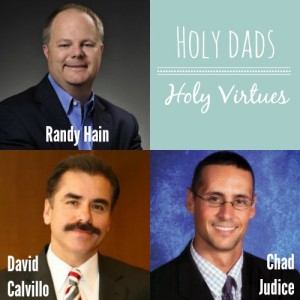
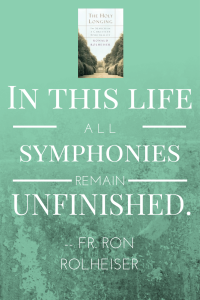 I chose this book because the author, Fr. Ron Rolheiser, has captured my attention with his newspaper columns which show up periodically in my local diocese paper and from his bi-weekly emails. He is extremely intelligent in his approach to Catholicism, yet somehow also really cuts to the heart of the matter in a plainspoken way in just a few short words. Provided for free by the Blogging for Books program, I grabbed this one the instant I saw it to hear this author expound in more detail.
I chose this book because the author, Fr. Ron Rolheiser, has captured my attention with his newspaper columns which show up periodically in my local diocese paper and from his bi-weekly emails. He is extremely intelligent in his approach to Catholicism, yet somehow also really cuts to the heart of the matter in a plainspoken way in just a few short words. Provided for free by the Blogging for Books program, I grabbed this one the instant I saw it to hear this author expound in more detail.